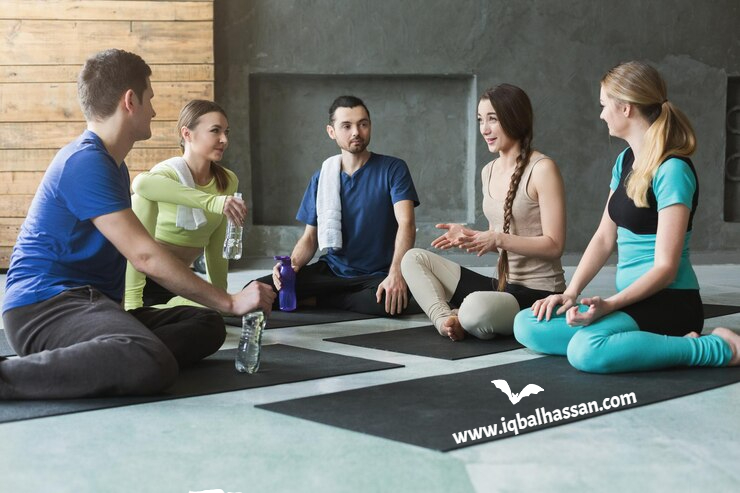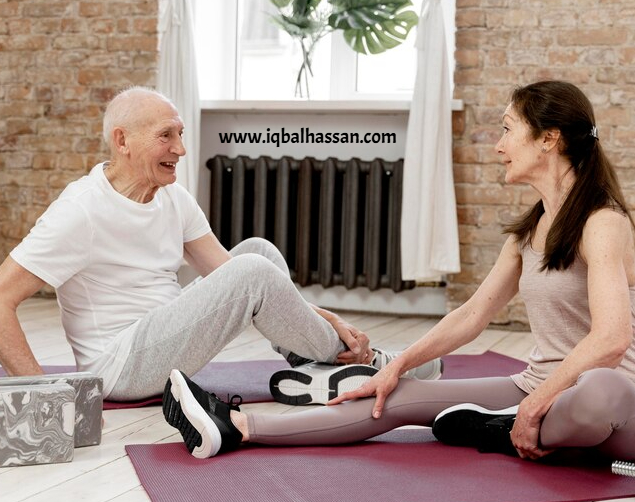
In today’s fast-paced world, mental fitness and physical fitness have become central pillars of our overall well-being. While these areas are often considered separately, there’s an increasing recognition of their interplay and the symbiotic relationship between them. Cultivating both mental and physical fitness not only supports productivity and personal growth but also contributes to a more fulfilling life. Let’s explore the fascinating mind-body connection and how a balanced approach to both mental and physical health can create resilience, enhance cognitive function, and ultimately improve our lives.
Understanding Mental and Physical Fitness
Mental fitness refers to practices that strengthen the mind, promote emotional health, and boost cognitive function. Activities like problem-solving, creativity, and mindfulness help enhance mental agility and flexible thinking. Engaging in mental exercises regularly can improve memory, manage stress, and even stave off depression.
Physical fitness, on the other hand, relates to maintaining a strong, healthy body through exercise, nutrition, and healthy lifestyle choices. Regular physical activity releases endorphins, the body’s natural “feel-good” chemicals, reducing stress and promoting self-confidence. Physical fitness is essential for health maintenance, reducing the risk of conditions like heart disease and diabetes, and supporting brain health by improving blood flow and oxygen supply.
The Symbiotic Relationship Between Mental and Physical Fitness
The connection between mental and physical fitness is similar to that of an interdependent partnership. The symbiotic relationship between the two means they support and enhance each other, creating a virtuous cycle of self-care and self-improvement. When you’re mentally fit, you’re more likely to maintain physical health. Conversely, physical fitness can enhance mental dexterity and promote emotional regulation.
- Exercise for Mental Health: Physical activity not only strengthens the body but also fuels the mind. Exercise is linked to neurogenesis, the growth of new brain cells, which supports cognitive function and improves memory. Additionally, exercise boosts neuroplasticity, enhancing learning and adaptability. A regular exercise routine promotes stress relief, reducing anxiety and depression.
- Mental Fitness for Physical Health: Developing mental fitness through techniques like meditation, positive affirmation, and visualization supports physical health. Intentional training of the mind can help manage emotional stress, which, when left unchecked, can lead to physical ailments. Mental fitness builds the resources needed to make healthy choices, maintaining both physical and mental well-being.
Techniques to Foster Mental Fitness
Building mental fitness involves intentional training through a variety of activities that improve cognitive function and resilience to life’s stressors. Here are some highly effective methods:
- Mindfulness Practice: Practicing mindfulness enhances focus, reduces stress, and promotes emotional regulation. Through consistent mindfulness, you can achieve a higher level of mental agility and greater self-confidence.
- Meditation: Meditation is a powerful tool for relaxation and mental clarity. It calms the mind, reduces stress, and allows you to approach problems from a fresh perspective. Meditative practices also contribute to brain health by improving fluid intelligence.
- Positive Affirmation and Self-reflection: Regularly practicing positive affirmation and self-reflection strengthens your neural pathways. This practice improves self-confidence, builds resilience, and helps in setting and achieving personal goals.
- Engaging New Experiences and Creativity: New experiences and creativity exercises are critical for mental agility. Trying new foods, visiting different places, or taking up a creative hobby can boost mental fitness by promoting adaptability and mental dexterity.
- Memory Exercises and Games: Engaging in activities like reading, crossword puzzles, and memory-based games enhances cognitive function and keeps the mind sharp.
Techniques to Support Physical Fitness
While physical fitness benefits mental health, achieving physical fitness also requires a dedicated approach to health maintenance. Here are some ways to foster a strong physical foundation that supports mental well-being:
- Endorphin-Boosting Workouts: Physical activities like running, swimming, and high-intensity workouts boost endorphins, reducing stress and elevating mood. Exercise provides a natural way to achieve stress relief and emotional balance.
- Strength Training and Flexibility Exercises: Strength training enhances resilience, while flexibility exercises like yoga improve emotional health by supporting physical relaxation.
- Consistent Exercise Routine: Building a daily or weekly exercise routine strengthens self-confidence and self-discipline, contributing to both mental and physical self-improvement.
- Healthy Diet and Hydration: Proper nutrition and hydration are essential for brain health and energy. Fueling your body well supports both physical fitness and mental fitness.
- Relaxation Techniques: After a workout, relaxation techniques like stretching and breathing exercises allow the body to release tension and recuperate, contributing to optimal health.
The Importance of the Mind-Body Connection for Overall Well-being

A balanced approach to mental and physical fitness creates an interconnected cycle that supports long-term well-being. With improved physical fitness, the brain gains a better supply of oxygen, which enhances cognitive function and helps reduce emotional health issues like depression. Meanwhile, enhanced mental fitness supports physical endurance, making it easier to maintain an active lifestyle even during challenging times.
This connection between mental and physical health also fosters social connections. People who are mentally and physically fit are more likely to engage socially, forming supportive relationships that further contribute to overall health and happiness. Practicing mental fitness before signs of mental strain appear can be a form of preventative mental care, helping us build resilience for future challenges.
Final Thoughts: Achieving Balance for a Fulfilling Life
The journey toward achieving balance in both mental and physical fitness is ongoing, but the rewards are tremendous. When we build mental fitness, we’re developing a foundation for improved resilience, cognitive function, and emotional well-being. Meanwhile, physical fitness helps us achieve strength, energy, and health. Together, mental and physical fitness create a foundation for navigating life’s demands with strength and optimism.
In a world where our mental and physical capabilities are tested every day, investing in both areas is the ultimate form of self-care. Embracing both mental and physical fitness with intentional practice fosters optimal health and resilience. So, lace up your sneakers, engage your mind, and remember: the journey to a healthier, happier life is one where mental and physical fitness meet and strengthen each other.
With a commitment to both, we’re equipped to face life’s challenges and enjoy its rewards, moving forward with confidence and a holistic approach to health.
